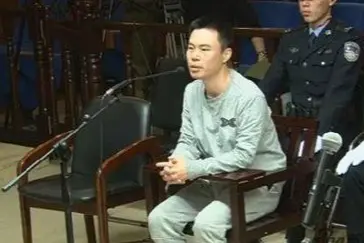Debate has been sparked online in China following the trial of four executives from the former Chinese online video service Qvod Technology. The Shenzhen-based video sharing company was charged with spreading pornography for profit.
The discussion has now gone beyond the trial. The tensions hidden behind the case, including those between public opinion and the judiciary as well as between technology and the law, expose new challenges in the Internet era and will provide reference for other cases in the future.
The case has revolved around the Internet from the very beginning. First of all, Qvod Technology, the defendant, is an Internet company. The case also went viral on the Internet as soon as the firm was shut down, since its video player used to boast massive numbers of online users. What’s more, the court trial was streamed live online, raising even more public attention for China’s first Internet-related case of 2016.
Regardless of the arguments, outsiders must applaud the openness of the trial. Thanks to the live broadcast, the influence of the case goes far beyond the courtroom. Statistics show that more than one million people watched the hearing, which was over 20 hours long.
Open judiciary is always the best legal education. The high profile case can really offer important legal lessons, especially amongst young people.
Other key elements involved in the case, including the procedure, evidence, technology, prosecutor performance, defense strategy, Internet development and legal boundaries, all contribute to the importance of the case as a future legal precedent.
In this sense, regardless of the final verdict, the Qvod case has demonstrated China’s progress in judicial transparency.
Given its great legal significance, the Qvod case should be treated more seriously and objectively than as mere tabloid news. The public should refrain from making uninformed judgments.
As lawful governance has come a long way in China, the public should be keenly aware of the basis of legal knowledge and never confuse the force of law with moral elements.
Guilty or not, the verdict should be decided by judges, and the court has every right to make that decision without being distracted by outside opinions. The court must independently make the final decision based on the law.
It is both a derailment of the live broadcast and a deviation from lawful investigation if the trial ends up as an open trial by Internet.
The Qvod case has triggered wide-ranging debates in the fields of law and technology, which many believe to be beneficial to China’s development in those fields.
Needless to say, since the technology firm was shut down two years ago, the question of proper boundaries for online technology and its moral baseline has drawn a lot of attention.
Two key propositions are also exposed by the debates: how should the legislature and judiciary react to the rapid development of the Internet? And: how should Internet technology facilitate daily life without harming the social atmosphere?
These debates also remind judicial officials to keep up with social and technological development.
Technology has never been neutral, as evidenced by the history of human civilization. Without regulations and laws, technological advancement can never be fully beneficial; at the same time, the law has to be constantly improved to cope with evolving challenges.
The era of new technology, in many people’s opinions, not only changes daily life, but also affects existing conceptions of laws, rights and morality. Piracy, for instance, was not a big deal when Internet first became widely used, but these days it is an entirely different situation.
The public needs to catch up with these changes. The Qvod case will eventually come to a close, but reflection should continue.
 简体中文
简体中文

